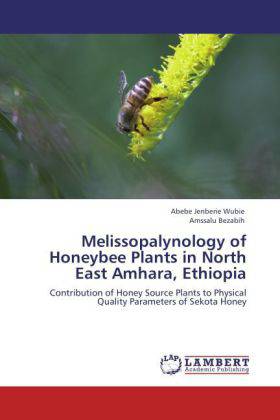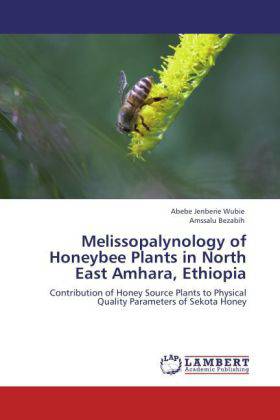
Bedankt voor het vertrouwen het afgelopen jaar! Om jou te bedanken bieden we GRATIS verzending (in België) aan op alles gedurende de hele maand januari.
- Afhalen na 1 uur in een winkel met voorraad
- In januari gratis thuislevering in België
- Ruim aanbod met 7 miljoen producten
Bedankt voor het vertrouwen het afgelopen jaar! Om jou te bedanken bieden we GRATIS verzending (in België) aan op alles gedurende de hele maand januari.
- Afhalen na 1 uur in een winkel met voorraad
- In januari gratis thuislevering in België
- Ruim aanbod met 7 miljoen producten
Zoeken
Melissopalynology of Honeybee Plants in North East Amhara, Ethiopia
Contribution of Honey Source Plants to Physical Quality Parameters of Sekota Honey
Abebe Jenberie Wubie, Amssalu Bezabih
Paperback | Engels
€ 67,45
+ 134 punten
Omschrijving
Floral inventory, pollen & indigenous knowledge analysis and physical honey quality determination procedures were carried out in sekota. Trapped pollen mellissopalynological analysis has confirmed that 45 species of flowering plants categorized in 27 families are found in the area and we have found that plants identified by indigenous beekeeping farmers have agreed with the results of this work insuring their indigenous knowledge is dependable for environmental analysis. Trapped & honey pollen analysis and other methodologies used have confirmed that Acacia tortolis, Bidens spp., Hypoestes trifolia, Ocimum bacilicum, Becium grandiflorum, Guizotia abyssinica, Echinops spp., Acacia seyal, Grewia bicolor, Eucalyptus camaldulensis, Achyranthus spp. and Vernonia spp. are the major honeybee plants contributing 69.24% of the pollen as a food. In this work, from the honey pollen & physical honey quality analysis, it was also possible to confirm that honey produced in the area from these plants meets the international physical quality parameters. Thus, their contribution for the production of physically qualified honey is considered as paramount important requiring protection & propagation.
Specificaties
Betrokkenen
- Auteur(s):
- Uitgeverij:
Inhoud
- Aantal bladzijden:
- 96
- Taal:
- Engels
Eigenschappen
- Productcode (EAN):
- 9783846524602
- Verschijningsdatum:
- 21/10/2011
- Uitvoering:
- Paperback
- Afmetingen:
- 152 mm x 229 mm
- Gewicht:
- 150 g

Alleen bij Standaard Boekhandel
+ 134 punten op je klantenkaart van Standaard Boekhandel
Beoordelingen
We publiceren alleen reviews die voldoen aan de voorwaarden voor reviews. Bekijk onze voorwaarden voor reviews.









